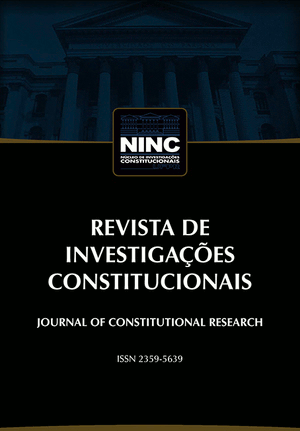Abstract
The introduction of a European Constitutional Treaty into the legal system calls into question two of the most deeply rooted juridical institutions of the West: the Constitutions and the Treaties, both of which depart, from the point of view of traditional doctrine, with different conceptual presuppositions. The paradox is linked to the conditions of evolution and planning of the global social system. Thus, the present article seeks to analyze the way in which the two models of legal diplomas - widely used in the global society - began to receive a different meaning due to the aforementioned co-evolution. To do so, it analyzes the two institutes from an angle related to the possibility of planning and controlling the evolution of a particular society, in the specific case the European Community, in which both the referendum and parliamentary approval proved its ineffectiveness for the need to understand the meaning of a new legal structure. The methodology used is based on the structural functionalism of Niklas Luhmann in the autopoietic aspect of his theory of autopoietic social systems. For this line, the referendum is, therefore, a mechanism of self-reference of the legal system. The results of the European suffrage show this paradox, leaving open the doubt about the need of planning the community space or the evolution from its own characteristics. This last concept is what explains this failure, given the complexity of the structures of a typical cross-border society such as the European one.
Palabras clave:
Europe; constitutional treaty; paradox; referendum; planning
